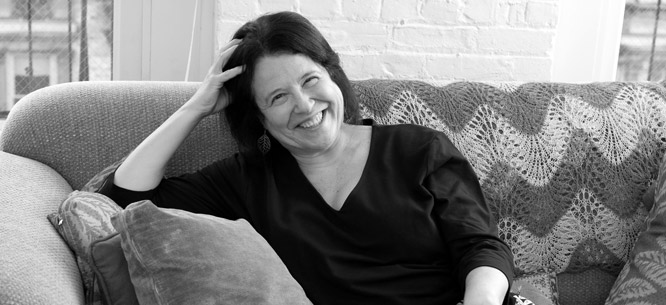The Rigorous Experimentalism of Ann Snitow, 1943–2019
The Rigorous Experimentalism of Ann Snitow, 1943–2019
Ann demanded of us, and demands of us still, that we be as creative, relentless, and serious as she was in the pursuit of collective liberation.

Ann was the most generous friend, mentor, and comrade, the constant host in her SoHo loft of visiting feminists and their conferences (and Dissent holiday parties), the warmest presence in any room—“my dear, tell me”—but I don’t want to talk about that here. Ann was forward looking. At her New School retirement celebration in April, all assembled testified to her brilliance and spoke about her founding of the New School gender studies program. When it was Ann’s turn to talk, she spoke to us about what was happening in Eastern Europe, new developments in right-wing power and abortion politics.
Our current political moment is not only dire but incoherent. It’s not clear how to organize successfully against the forces that we face, as Ann well knew. We occupy a time of uncertainty. At the same time, our modern media economy pushes those who write or speak about politics to take quick and hard positions. In this sense, we are in a time of coerced certainty.
Uncertainty was Ann Snitow’s specialty. She was skeptical of hard categories like, for example, “woman.” For some, reflexive skepticism might lead to a sort of academic cul-de-sac. But Ann’s questioning led her not to hopelessness or inaction but to expansiveness. When queer politics was becoming a bigger force at the New School, Ann was thrilled: “The idea that gender is a construct, a performance, moved to the center of feminism. . . . It was opening up the whole question of why we have organized the world in this rigid way. And, you know, I love that,” she told me. This attitude pervaded her relationship with younger feminists, to whom she provided invaluable guidance, but also listened. She is the only person I’ve ever met who seemed unthreatened by the dissolution of the categories that were fundamental to her field and by that field’s reshaping by successive generations. She delighted in change.
As everyone who knew Ann knows, her teaching and academic work emerged from her life as an activist, and the two fed each other. She was not just expansive in her thought but in her activities, which included consciousness raising; early feminist organizing; anti-nuclear occupations; the founding of an NGO, the Network of East-West Women; teaching film in prison; fighting the sex wars; and organizing for reproductive rights. She once made reference to helping write the Sandinista constitution, something I had rather meant to follow up on. Lest this sound haphazard, the tight relationship between her activism and intellectual work meant that she was rigorous in her experimentalism. She was flexible in pursuit of the inflexible goal of equity, and she was not afraid to evolve. She wrote in The Feminism of Uncertainty, “Don’t swamp with paralyzing doubt what might be your small piece of the larger, evolving project.”
I took a great lesson from this. Ann would often declare herself tired, but she never s...
Subscribe now to read the full article
Online OnlyFor just $19.95 a year, get access to new issues and decades' worth of archives on our site.
|
Print + OnlineFor $35 a year, get new issues delivered to your door and access to our full online archives.
|






